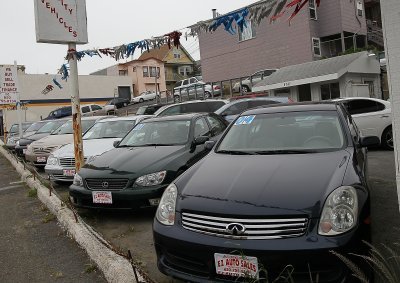Dealers ‘Recycle’ Cars, Profits

Selling and selling again
In information unearthed by the Los Angeles Times, it was found that one in eight used car dealers in the state of California sold at least one vehicle three or more times.
The reason for this bizarre sales practice has been blamed on dealerships financing their own deals, rather than using outside lenders, and selling cars to low-income buyers who would be unlikely to qualify for a loan elsewhere.
These dealers then charge interest rates reported to top 30% and demand large deposits, and are quick to repossess cars when customers default. These vehicles are then offered for sale by the same dealers and this “churning” is reported to be used to boost profits.
Detroit News further reports three bills are being debated in the California legislature that aim to impose new regulations on the industry.
The bills include provisions to cap the interest rate dealers can charge , would force them to disclose the fair market value of cars they sell and also require them to register as lenders.
They have, however, been met with opposition from used car dealers who have said the increased regulation would put many out of business.
California Assemblyman Mike Feuer, who wrote one of the bills, said the bills were meant to curb potentially predatory practices, which he said were underreported and potentially devastating to low-income families who needed reliable cars to get to work.
Feuer said: "The practice of turning over high-mileage vehicles multiple times underscores why we need to have this legislation. You want these transactions to succeed, and that doesn't mean selling the same car many times over. It means the consumer keeps the car."
'Set up for failure'
Dealers argued that churning was rarely practiced.
Larry Laskowski, executive director of the Independent Automobile Dealers Association of California said that every time a car was returned to the showroom to be resold, dealers faced a number of expenses – including fees to repo men, repair and cleaning costs and commissions to salesmen – that cut into their profits.
Other industry experts, including Rick Garrett, a former dealer who now works as a legal consultant for consumer attorneys, said that in some circumstances, churning can simply be good business. Nagging late-paying customers is a headache, he said, and by repossessing at the first opportunity, a dealer could score a series of quick down payments on a car the dealership only paid for once.
Garrett said: "A lot of these dealers set their customers up for failure.
“They see your pay stub. They know how much you make, and they structure your payments so you can't afford them."
Nouvelles connexes


